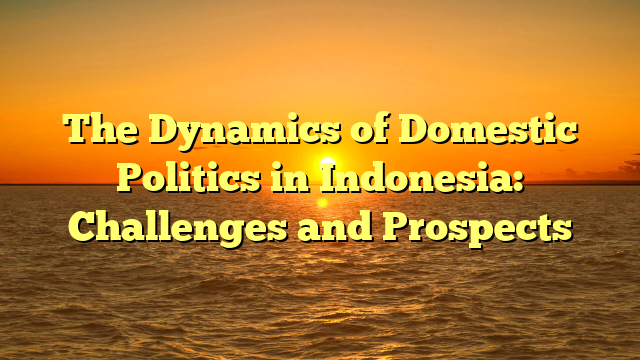Domestic politics in Indonesia continues to be shaped by a combination of historical legacies, economic pressures, and the evolving demands of a modern democracy. Since the fall of the New Order regime in 1998, the country has made significant progress in building democratic institutions, ensuring political freedoms, and conducting free and fair elections. However, these achievements are accompanied Pattimura4d by complex challenges that test the resilience of Indonesia’s political system.
One of the most pressing issues is the balance between central and regional authority. The decentralization policies implemented in the early 2000s aimed to empower local governments and bring governance closer to the people. While these reforms have encouraged regional autonomy and local innovation, they have also created disparities in governance quality across provinces. Some regions have thrived, using their autonomy to improve public services and economic growth, while others struggle with corruption, inefficiency, and limited resources.
Corruption remains a persistent concern in Indonesia’s domestic politics. Despite the efforts of the Corruption Eradication Commission (KPK) and other watchdog institutions, high-profile corruption cases involving politicians, government officials, and even law enforcement figures continue to emerge. Public trust in political leaders is often undermined when corruption scandals dominate the news. Strengthening anti-corruption measures, ensuring transparency, and protecting whistleblowers are essential steps in restoring confidence in political governance.
The role of political parties also plays a critical part in shaping Indonesia’s domestic political landscape. Indonesia’s multiparty system, while offering diverse political representation, often results in coalition governments. These coalitions, formed to secure parliamentary majorities, can lead to compromises that dilute policy agendas. Moreover, many political parties are criticized for being personality-driven rather than ideology-based, prioritizing electoral success over long-term policy vision. This situation can hinder consistent governance and reduce the focus on substantive policy debates.
In recent years, identity politics has emerged as another factor influencing domestic politics. Issues related to religion, ethnicity, and cultural differences have occasionally been exploited for electoral gain. While Indonesia’s motto, Bhinneka Tunggal Ika (Unity in Diversity), emphasizes tolerance and pluralism, tensions sometimes flare during election campaigns. Such divisions, if left unchecked, risk undermining national cohesion and distracting from urgent socio-economic priorities.
Economic policy is another key driver of political discourse. The government faces the challenge of balancing economic growth with social equity. Infrastructure development has been a top priority, with major projects aimed at connecting remote regions and boosting economic activity. However, economic inequality persists, particularly between urban and rural areas. The political pressure to deliver quick results sometimes leads to short-term policy measures rather than comprehensive, sustainable strategies.
The role of civil society and the media in domestic politics cannot be overstated. Indonesia’s vibrant press and active non-governmental organizations have been instrumental in holding leaders accountable and raising public awareness on key issues. Social media has further amplified political debates, enabling grassroots movements to influence public discourse. However, the rise of misinformation and online polarization poses new challenges to informed democratic participation.
Looking ahead, the prospects for Indonesia’s domestic politics will depend largely on the ability of political leaders, institutions, and citizens to address these challenges collaboratively. Strengthening democratic norms, improving the integrity of political parties, and fostering an inclusive political culture are crucial steps toward a more stable and effective governance system. Moreover, cultivating a political environment that prioritizes long-term national interests over short-term electoral gains will be essential for sustaining Indonesia’s democratic progress.
In conclusion, Indonesia’s domestic political landscape is a complex mix of achievements and challenges. While the country has made remarkable strides in democratic consolidation since the Reformasi era, persistent issues such as corruption, identity politics, and uneven governance continue to test its resilience. Addressing these problems requires not only institutional reforms but also a collective commitment from citizens, political actors, and civil society to uphold democratic values and work toward a more equitable and united nation.
